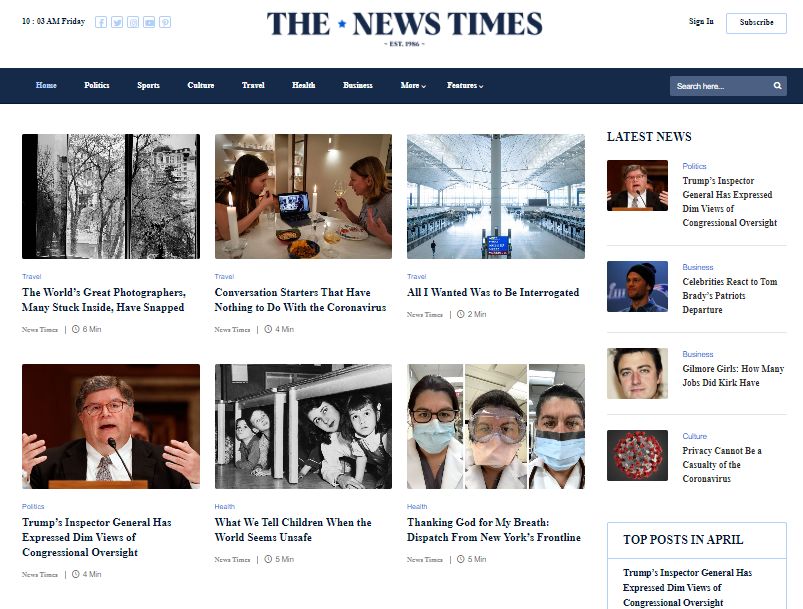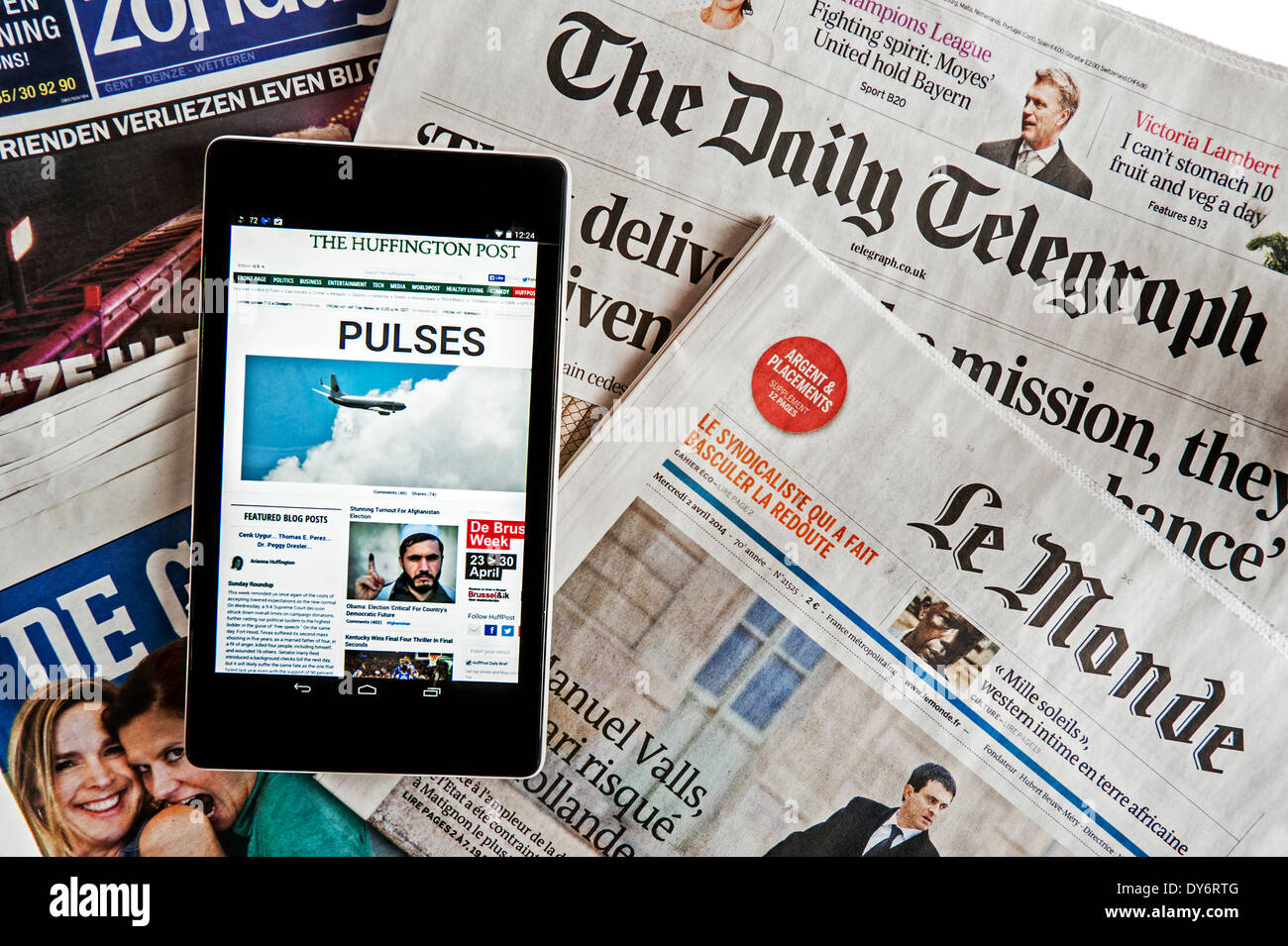9 Lesser-Known Features of stnews.live You’ll Love
The Relevance of Fact-Checking worldwide of News Online
The frequency of false information in today's on-line news landscape has actually reached startling levels. Fact-checking organizations play a necessary role in combating this trend. They validate claims and boost the integrity of journalism. The efficiency of these companies typically pivots on their techniques and public perception. As audiences browse this complicated atmosphere, the implications of their findings may form the future of news consumption and trust fund. What does this mean for the honesty of info relocating forward?

The Increase of Misinformation in the Digital Age
How has the arrival of digital technology contributed to the spread of false information? The rapid growth of the internet and social media sites systems has helped with the circulation of details at an unmatched speed. Individuals can share write-ups, videos, and viewpoints with a mere click, usually without confirming the content's accuracy. Algorithms focus on sensational or mentally billed material, causing a spreading of deceptive narratives that catch focus.
Additionally, the privacy paid for by electronic platforms allows people to spread out incorrect info without accountability (stnews.live). Misinformation thrives in echo chambers, where customers are exposed mostly to point of views that reinforce their beliefs, even more setting falsehoods. The saturation of information can bewilder individuals, making it testing to recognize trustworthy sources from unstable ones. As a result, misinformation has come to be a pervasive concern in the electronic landscape, influencing popular opinion and depend on in reputable news resources
The Function of Fact-Checking Organizations
Fact-checking organizations play a vital function in boosting the credibility of journalism by validating insurance claims made in news records. Their efforts are important in combating false information, ensuring that exact details prevails in the digital landscape. By holding media electrical outlets liable, these companies add significantly to educated public discourse.
Enhancing Credibility in Journalism
While misinformation multiplies in the digital age, fact-checking companies play a crucial duty in improving the reliability of journalism. These companies thoroughly verify claims made in news posts, public statements, and social media sites messages, guaranteeing that information disseminated to the public is precise and trustworthy. By providing independent evaluations, they function as an important resource for journalists, helping them maintain high standards of stability. On top of that, their initiatives promote openness in media, fostering public trust fund. As audiences come to be progressively discerning, the existence of reliable fact-checking entities can identify trusted news resources from those that may spread falsehoods. Inevitably, the dedication of fact-checking companies to copyright truthfulness is essential for the health and wellness of democratic discussion.
Combating False Information Successfully
As misinformation proceeds to spread out swiftly across digital platforms, the duty of fact-checking companies ends up being significantly critical in the battle for precise details. These organizations serve as watchdogs, looking at insurance claims made by somebodies and media electrical outlets to ensure responsibility. By using rigorous research approaches and specialist evaluation, they confirm realities and make clear deceptive narratives. Their findings are disseminated through numerous networks, enlightening the general public and fostering critical thinking. Furthermore, collaborations with social networks systems improve their reach, enabling prompt flagging of incorrect details. As electronic literacy expands, the influence of fact-checking companies is essential in encouraging target markets to determine truth from fraud, ultimately adding to a more enlightened society.
How Misinformation Affects Public Assumption
False information significantly undermines trust in media, leading audiences to question the trustworthiness of news sources. Because of this, individuals usually gravitate towards electrical outlets that reinforce their current ideas, contributing to the polarization of point of views. This dynamic develops a fragmented info landscape, where shared comprehending comes to be progressively hard to achieve.
Rely on Media

Trust in media has come to be increasingly delicate in the digital age, where the quick spread of incorrect information can alter public assumption. As false information multiplies throughout social media and on the internet platforms, audiences often discover it testing to determine reputable resources from unstable ones. This uncertainty promotes uncertainty, leading several people to question the objectives behind news coverage. Depend on in developed media electrical outlets has actually lessened, as consumers increasingly turn to alternate sources that may do not have extensive editorial check out here standards. This erosion of depend on not just impacts individual ideas however also undermines the cumulative capacity to participate in notified conversations. Eventually, the integrity of journalism is at stake, highlighting the critical need for effective fact-checking to bring back confidence in the media landscape.

Polarization of Viewpoints
The increasing uncertainty towards conventional media has added to a growing polarization of viewpoints among the public. False information, frequently shared via social media and on the internet systems, plays a significant function fit unique ideological divides. Individuals regularly look for out info that lines up with their pre-existing ideas, reinforcing their point of views while rejecting opposing viewpoints. This echo chamber result increases divisions, leading to a fragmented public discourse where agreement ends up being progressively evasive. Furthermore, sensationalized stories flourish in this environment, additionally skewing public assumption and cultivating question in trustworthy sources. As polarization intensifies, the necessity for reliable fact-checking ends up being paramount to bridge spaces and advertise educated discussions, eventually making certain a much more natural society with the ability of maneuvering complicated issues.
Techniques for Effective Fact-Checking
Reliable fact-checking depends on a methodical technique that consists of extensive study, verification of resources, and essential analysis of cases. A fundamental technique is cross-referencing info from several qualified resources to verify its precision. Fact-checkers commonly make use of specialized data read more sources and archives to map the beginning of certain declarations, ensuring that the reported info aligns with recorded evidence.
One more crucial technique involves looking at the context in which cases exist. Deceptive info can develop from out-of-context quotations or careful data use. By taking a look at the broader narrative, fact-checkers can identify potential biases or misinterpretations.
Involving with experts in appropriate fields can provide clarity and understanding that boosts the fact-checking process. This partnership can uncover subtleties that laypeople might overlook - stnews.live. Inevitably, a regimented method integrating these techniques fosters a much more educated public, enhancing the dependability of details shared in the digital age
The Effect of Social Media on News Usage
How has social networks transformed the means people take in news? The development of platforms like Facebook, Twitter, and Instagram has significantly transformed news consumption patterns. News is currently disseminated quickly, enabling users to gain access to real-time updates and involve with content through likes, shares, and comments. This immediacy has actually promoted a choice for bite-sized info, frequently at the expenditure of extensive analysis.
In addition, social media enables individualized news feeds, where formulas curate content based upon customer choices, developing resemble chambers that may limit direct exposure to diverse point of views. The role of traditional news outlets has lessened as individuals progressively depend on peer referrals and trending subjects. Consequently, the trustworthiness of info is commonly jeopardized, as sensationalism can overshadow factual reporting. On the whole, social media has actually reshaped news usage, stressing speed and personalization while testing the standards of journalistic integrity.
Empowering Target Markets to Determine Dependable Sources

Additionally, analyzing the authorship and organizational background of newspaper article can disclose potential prejudices. Cross-referencing information throughout multiple respectable outlets even more boosts the verification process. Using digital tools, such as internet browser extensions that rank the reputation of sites, can also help in recognizing credible info. By proactively engaging with these sources and growing a vital way of thinking, audiences can better furnish themselves to recognize trustworthy news resources, eventually cultivating a much more informed society amidst the intricacies these days's media environment.
The Future of Journalism and Fact-Checking
As the media landscape progresses, the future of journalism and fact-checking faces both tests and possibilities. The like it increase of electronic platforms has democratized details circulation, permitting diverse voices to arise. This has actually also led to the spreading of false information, requiring robust fact-checking systems. Reporters will significantly depend on modern technology, consisting of AI devices, to validate truths rapidly and effectively.
Collaboration in between news organizations and fact-checking entities is anticipated to reinforce reliability and transparency. In addition, target market involvement will certainly play an important function, as informed readers come to be significant companions in determining reliable material.
The demand for responsibility and accuracy is likely to grow, pressing reporters to copyright high standards in their reporting. Eventually, the future of journalism may pivot on its capacity to adjust to technical developments while keeping journalistic stability, making sure that fact-checking stays a keystone of trustworthy news.
Frequently Asked Concerns
Exactly How Can I Report Misinformation I Run Into Online?
To report false information run into online, people can utilize platform-specific reporting devices, give clear proof, and share the information with fact-checking organizations. Involving with community conversations can also help elevate recognition about the misinformation.
What Are Typical Indicators of False Information in News Articles?
Typical indications of misinformation in news articles consist of thrilling headings, absence of legitimate resources, psychological language, irregular facts, and lack of author credentials. Viewers need to critically evaluate content for these indicators to recognize precision.
Exactly How Do Fact-Checkers Validate Sources?
Fact-checkers verify resources by cross-referencing information with trustworthy data sources, speaking with experts, and checking out the original context of insurance claims. They also assess the reliability of the sources, guaranteeing precise and credible details for public usage.
What Lawsuits Can Be Taken Against Misinformation?
Lawsuits against misinformation may include character assassination suits, cease-and-desist orders, and regulative penalties. Victims can prosecute with civil courts, while some territories enforce penalties or permissions on platforms distributing false info.
Exist Apps for Fact-Checking News On-The-Go?
Many applications exist for fact-checking news on-the-go, consisting of Snopes, FactCheck.org, and PolitiFact. These applications aid customers confirm insurance claims rapidly, advertising informed decision-making and promoting a more critical method to consuming news in real-time.